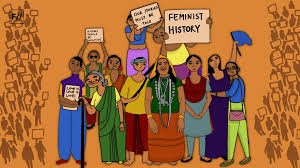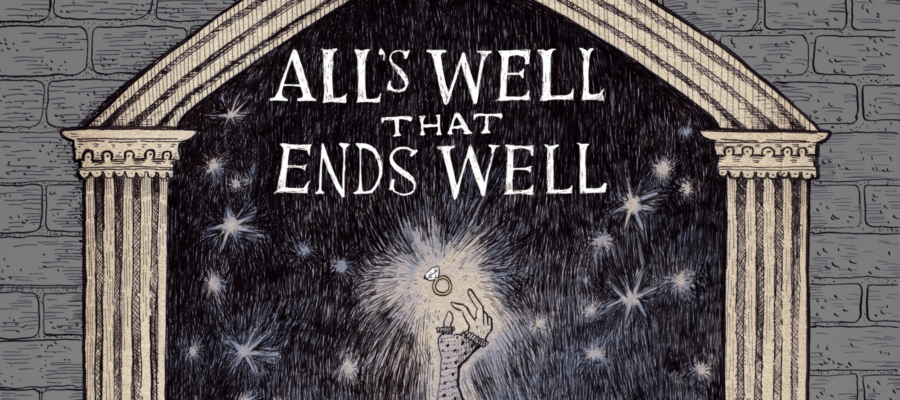Safia Ramzan
Aristotle’s Poetics, written around 335 BCE, is one of the earliest surviving works of Greek dramatic theory. This seminal treatise is the first of its kind, providing a deep exploration of literary criticism, particularly in the realm of poetry, drama, and epic. In Poetics, Aristotle outlines the essence of what constitutes good poetry, emphasizing the role of mimesis, or the imitation of life, which is central to his understanding of all art forms. Through the work, Aristotle divides poetry into three major categories: verse drama, lyric poetry, and epic poetry. Each of these genres shares the common function of imitating life, yet they differ significantly in their techniques and narrative structures.
While the surviving text primarily delves into drama, particularly tragedy, Poetics has had a profound influence on Western critical thought, sparking numerous debates over its interpretations and applications. Scholars continue to examine the intricacies of Aristotle’s arguments, particularly his concepts of catharsis, hamartia, and the relationship between the unities of time, place, and action. Moreover, there are notable questions surrounding Aristotle’s apparent contradictions between different sections of the treatise, especially in relation to the comparative analysis of tragedy and epic poetry.
The Historical Context and Rediscovery of Poetics
Aristotle’s work on aesthetics is not limited to Poetics alone; it is part of a larger philosophical investigation into the nature of human understanding, including works such as Politics and Rhetoric. However, Poetics faced significant periods of obscurity. For much of Western history, the text was lost until it was rediscovered in the Middle Ages through Arabic translations, particularly that of the scholar Averroes. These translations were pivotal in reintroducing Aristotle’s ideas to the Western world, particularly during the Renaissance when scholars like William of Moerbeke began translating the work back into Latin.
Historically, the original Poetics was likely divided into two sections, one focusing on tragedy and epic poetry, and the other on comedy. Unfortunately, only the first part survived, leaving the discussion on comedy incomplete. Some scholars believe that the Tractatus Coislinianus may summarize the contents of this lost second book. Nonetheless, the surviving portion of the text remains one of the most important foundational works in literary criticism.
The Structure and Themes of Aristotle’s Poetics
The Poetics is traditionally divided into five parts, each of which explores a different aspect of poetry and dramatic art. These sections serve as a detailed guide for understanding the nature and structure of tragedy, epic poetry, and comedy.
- Preliminary Discourse: Aristotle begins by providing an overview of the three chief forms of imitative poetry—tragedy, epic poetry, and comedy. He emphasizes that all of these genres share the common goal of imitation, or mimesis, but they differ in their methods, character portrayals, and narrative techniques.
- Definition of Tragedy: Aristotle then defines tragedy as a form of poetry that represents a serious, complete action of considerable magnitude, accomplished through embellished speech and performed by actors rather than narrated. The central elements of tragedy, according to Aristotle, are its plot, character, and emotional impact on the audience, specifically the experience of catharsis—purging emotions of pity and fear.
- Rules for Constructing a Tragedy: In the core of his analysis, Aristotle outlines the essential components of a tragedy. A good tragedy must have a well-structured plot that evokes emotions in the audience. The characters must be morally good, appropriate for their roles, consistent in their behavior, and realistic in their actions. Additionally, the plot should include moments of reversal and recognition—twists in the narrative that heighten the emotional engagement of the audience. Aristotle also stresses the importance of diction and thought in delivering the character’s motivations and ideas.
- Criticism of Tragedy and Epic Poetry: Aristotle acknowledges that there are criticisms of both tragic and epic poetry. He responds to these critiques by asserting that tragedy is superior to epic poetry because it condenses time and focuses on a singular, intense emotional impact. Tragedy’s shorter format allows for a more concentrated emotional experience, whereas epic poetry often lacks the unity of action that makes tragedy so compelling.
- Comparing Tragedy with History: Aristotle makes an important distinction between poetry (specifically tragedy) and history. While history records actual events, tragedy presents a dramatized, idealized version of events that could have occurred. According to Aristotle, tragedy is more philosophical than history because it presents universal truths and moral lessons through its depiction of human actions and their consequences.
Pl watch the video and subscribe to the YouTube channel of republicpolicy.com
Aristotle’s Key Concepts in Poetics
Several key concepts introduced by Aristotle in Poetics have become foundational to the study of literature and drama. The most famous of these include catharsis, hamartia, and the concept of tragedy’s structure.
- Catharsis: One of the most debated ideas in Aristotle’s Poetics is catharsis, the emotional purification that the audience experiences through the emotions of pity and fear. Aristotle suggests that a well-crafted tragedy allows the audience to purge these emotions by experiencing them vicariously through the characters.
- Hamartia: Often translated as “tragic flaw,” hamartia refers to the error in judgment or decision made by the protagonist that leads to their downfall. This flaw is not necessarily a moral failing but an unavoidable mistake that results from the character’s nature or circumstances.
- Unity of Plot: Aristotle stresses the importance of a coherent plot, one that is unified and structured in a way that the events logically follow one another. The plot should not be random but must arise naturally from the actions of the characters.
- Character and Ethos: Aristotle identifies the importance of character in tragedy. The protagonist must be a person of high moral stature who experiences a fall due to a tragic error. The character’s actions should be consistent and believable, and their motivations should drive the plot forward in a logical manner.
The Legacy and Influence of Aristotle’s Poetics
The influence of Aristotle’s Poetics extends far beyond ancient Greece. During the Middle Ages, Arabic scholars like Averroes, Avicenna, and Al-Farabi helped preserve and comment on Aristotle’s work, often introducing their own moral interpretations of tragedy and comedy. Averroes, for example, viewed tragedy as an art of praise and comedy as an art of blame, a distinction that influenced both Arabic and later Western literary traditions.
During the Renaissance, Poetics became a cornerstone of literary criticism. Scholars in Italy, such as Lodovico Castelvetro, translated and expanded on Aristotle’s ideas, shaping the course of Western dramatic theory. These early interpretations of Poetics laid the groundwork for later developments in the study of literature and drama, from the neoclassical emphasis on the unities of time, place, and action to modern debates on the nature of tragedy and catharsis.
Today, Aristotle’s work remains a touchstone in the study of dramatic theory and literary criticism. While scholars continue to debate aspects of the text, particularly in regard to its treatment of comedy and its application to different cultural contexts, Poetics continues to influence playwrights, filmmakers, and literary critics who seek to understand the deeper principles that govern the art of storytelling.
Aristotle’s Poetics stands as a foundational work in the history of literary criticism, offering a detailed analysis of the principles of tragedy, epic poetry, and the broader art of imitation. Though the treatise has undergone extensive scrutiny and interpretation over the centuries, its influence remains undeniable. Through Poetics, Aristotle provides a lens through which we can better understand the emotional, moral, and structural dimensions of storytelling, making it an essential text for anyone interested in the philosophy of art and literature.
















